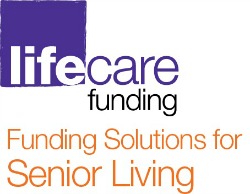Private Pay option gives seniors an alternative to abandoning a life policy
By Chris Orestis, CEO of Life Care Funding
Millions of seniors across the country needlessly abandon their life insurance policies as they begin planning for Senior Care. For many, they either cannot afford to pay the premiums or they plan to lapse or surrender their policies to qualify for Medicaid. What they don’t realize is that they have the legal right to convert their policies into a Life Care Benefit Plan.
Converting a policy allows the senior to remain private pay — meaning they are not reliant on public assistance and can choose the form of care that they want: home care (Private Duty/Non-Medical and Skilled Medical), assisted living, skilled nursing, memory care, and hospice. At a time when seniors and their families are struggling with how to afford the high costs of senior care, and state budgets are looking for ways to save money, converting a life insurance policy to pay for Senior Care instead of abandoning it for nothing in return makes much more sense.
The Life Care Benefit Plan and Medicaid
A Life Care Benefit Plan is a tangible asset to pay for Senior Care and is created by selling a life insurance policy for its market value — it is not a long-term care insurance policy or a policy loan. The Benefit Plan is a unique financial option for seniors because there are no waiting periods, no care limitations, and there are no costs or obligations to apply. Additionally, seniors are no longer responsible for premium payments. A policy owner is legally authorized to enroll in the Benefit Plan and this immediately enables them to direct monthly payments to the coverage of their choice of Homecare, Senior Housing, or Long Term Care costs.
The Life Care Benefit is considered a “qualified spend- down” of a life insurance policy asset for Medicaid eligibility. A life insurance policy is legally recognized as an asset of the policy owner and it counts against them when qualifying for Medicaid. If a policy has anything more than a minimal amount of cash value (usually in the range of $2,000) it must be liquidated. That money is then allocated for the cost of care before the owner will qualify for Medicaid. Medicaid requires applicants to disclose whether they own a life insurance policy and, if so, to provide full policy details. Failure to disclose and comply will disqualify a Medicaid applicant.
Any type of life insurance policy can be converted to pay for any form of Senior Care
The policy conversion option applies to any form of life insurance policy including universal, whole, term and group.
The value of the conversion is based solely on the death benefit, meaning the senior will receive a maximum amount of value toward their Life Care Benefit Plan. The benefit plan is an irrevocable, FDIC insured benefit account administered by a third-party ensuring the funds are protected for the recipient of care. The Benefit Plan also features the added protection of providing a final expense benefit to help cover funeral expenses. Lastly, if the insured should pass away before the benefit amount is exhausted, any remaining balance is paid to the family or named beneficiary as a final lump sum payment. “Since 2007, Life Care Funding has been converting life insurance policies to help families pay for Senior Care across the United States”, explained Chris Orestis, CEO of the company that created this funding option for seniors, “and for example we worked with a family whose father owned a $250,000 term life policy he was going to let lapse. Instead we converted it into a $150,000 Life Care Benefit that allowed their father to remain at home receiving professional Homecare for the rest of his life– and avoided ever having to go onto Medicaid or move into a nursing home.”
“Since 2007, Life Care Funding has been converting life insurance policies to help families pay for Senior Care across the United States”, explained Chris Orestis, CEO of the company that created this funding option for seniors, “and for example we worked with a family whose father owned a $250,000 term life policy he was going to let lapse. Instead we converted it into a $150,000 Life Care Benefit that allowed their father to remain at home receiving professional Homecare for the rest of his life– and avoided ever having to go onto Medicaid or move into a nursing home.”
Today, assisted living communities, nursing homes and home health companies across the country accept this funding method. They have embraced this concept because it allows them to quickly help families who need financial assistance without the added steps and approvals that may come with Medicaid. Political leaders have also begun to realize the cost-saving implications by extending the time a person can privately pay before becoming Medicaid eligible through the this conversion option.
Converting life insurance to pay for Senior Care is a big win for seniors and their families, providers of elder care services, and for every tax payer.
About the Author
Chris Orestis is CEO of Life Care Funding. He is a nationally known senior care advocate and 15-year veteran of both the life insurance and long term care industries having worked with both HIAA and ACLI; a member of the Advisory Board to the 3in4 Need More Association; and a frequent speaker, featured columnist, and contributing editor to a number of industry publications. His blog on senior living issues can be found at www.lifecarefunding.com/blog.
He can be reached at 888-670-7773 or corestis@lifecarefunding.com.



